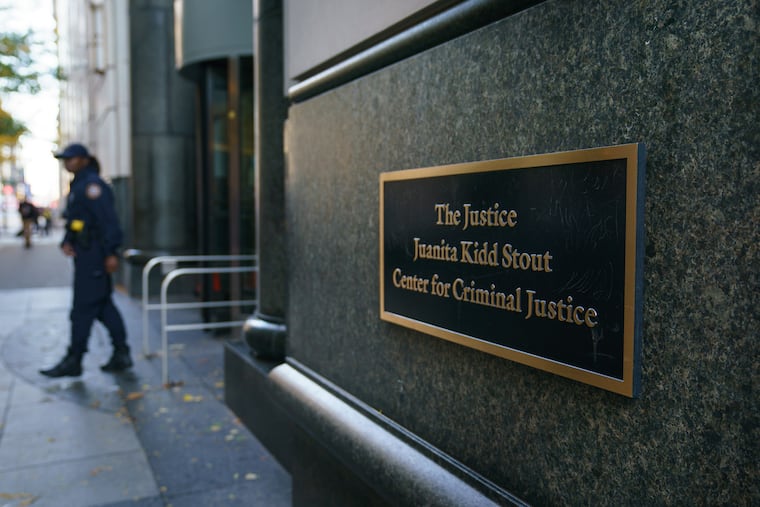Pa. Supreme Court halts Philly criminal trials streamed on YouTube over possible harassment
District Attorney Larry Krasner said that the broadcasts posed significant risk for intimidation of witnesses, victims and defendants.

The Pennsylvania Supreme Court on Thursday ordered a halt to the live broadcasts of Philadelphia criminal trials on YouTube, after District Attorney Larry Krasner argued that the airing of such proceedings had opened a new window for harassment of witnesses, victims, and defendants.
In a brief order, the high court imposed an immediate stay on those broadcasts, which had become standard since the pandemic led to courtrooms across the city, state, and country being shut down. Courts in Philadelphia are still closed to attendance by the public.
The justices' decision directed the First Judicial District, which manages the city’s court system, to coordinate with state officials and find an alternate method for livestreaming trials.
Krasner’s petition said the practice of using dedicated, public YouTube broadcasts expanded the risks of intimidation of witnesses, defendants and victims alike.
“The [First Judicial District] has gone too far in attempting to meet public access requirements in the COVID-19 era,” the district attorney and his staff wrote in the petition. “The policy of streaming criminal jury trials over YouTube violates the privacy of all parties and endangers witnesses in a jurisdiction known for intimidation and retaliation achieved through social media. There is no need to take these risks where ample alternatives exist that meet or exceed constitutional requirements.”
The filing was a direct appeal to the high court called a King’s Bench motion. They are rarely successful, but this one drew near-unanimous support from public defenders, legal advocates, and private attorneys.
It was not immediately clear what the impact of the order would be. In the petition, Krasner and his staff suggested a variety of alternatives, including using private Zoom calls and closed-circuit television feeds within the Stout Center for Criminal Justice.
A spokesperson for the court system deferred comment on the Supreme Court’s order to the Administrative Office of Pennsylvania Courts, and representatives from that office declined to comment late Thursday.
» READ MORE: As jury trials resume in Philadelphia, courts lay out plans for juror safety
Krasner said Thursday night that he was “very encouraged that the Supreme Court recognized the urgency of the King’s Bench petition."
”It is essential in protecting the judicial process that we protect the people that participate in the process," he said. “And it’s of the utmost importance to protect witnesses and defendants from having their testimonies used against them for the rest of their lives.”